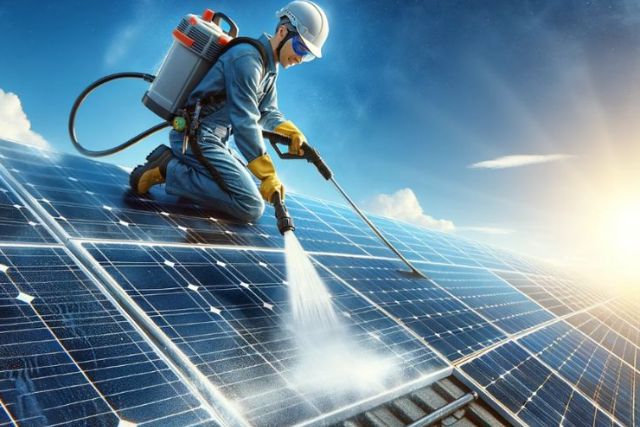Solar panels are an essential component of a renewable energy system, but many people overlook the importance of keeping them clean.
We discuss why it is crucial to regularly clean your solar panels, the effects of dirty panels, and how often they should be cleaned.
Explore different methods for cleaning solar panels at home, dos and don'ts to keep in mind, tips for maintaining clean panels, and whether professional cleaning services are necessary.
Discover the best ways to care for your solar panels!
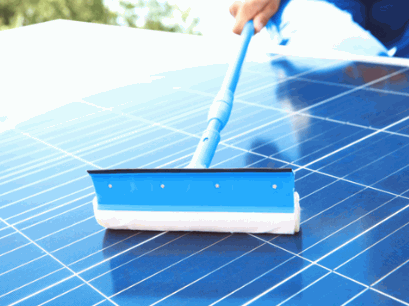
What Are Solar Panels?
Solar panels, which consist of photovoltaic cells, are devices that convert sunlight into solar energy, providing a clean and renewable source of power for various applications.
Solar panels play a crucial role in harnessing the abundant energy from the sun and converting it into electricity through the photovoltaic cells embedded within them. These cells are made of semiconducting materials like silicon, which absorb photons from sunlight and generate an electric current.
The benefits of solar energy are manifold - it is environmentally friendly, reduces electricity bills, and offers energy independence. Residential homes can utilize solar panels to power their appliances and reduce their carbon footprint, while commercial establishments can cut operational costs and contribute to a greener planet.
Explore in-depth: What Solar Energy Can Be Used For
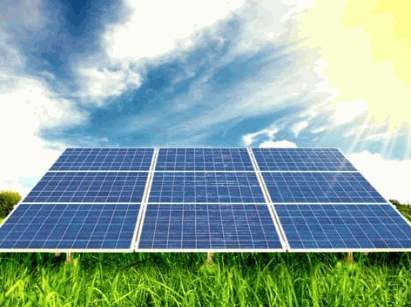
Why Is It Important To Clean Solar Panels?
Regular cleaning of solar panels is essential to maintain their efficiency and ensure they produce the maximum amount of energy possible, a practice recommended by many solar companies.
When dirt and debris accumulate on the surface of solar panels, they can hinder sunlight absorption, leading to reduced energy production. This build-up acts as a barrier between the sun's rays and the photovoltaic cells, impacting the panel's ability to convert sunlight into electricity efficiently.
Regular maintenance not only enhances performance but also extends the lifespan of the panels. Without proper cleaning, the accumulated grime can cause hot spots, which may damage the cells and shorten the overall lifespan of the solar panel system.
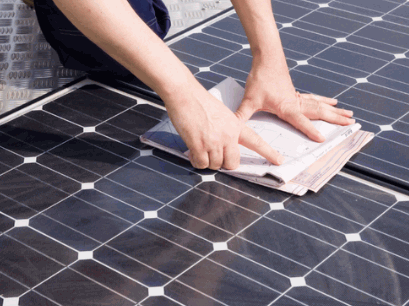
What Are The Effects Of Dirty Solar Panels?
Dirty solar panels can lead to a significant decrease in efficiency, as dirt and debris obstruct sunlight from reaching the photovoltaic cells, thereby reducing the amount of energy generated.
Over time, this build-up can not only impact the panels' energy production but also potentially cause damage to the panels themselves. When dust and grime accumulate, they create a barrier that hinders the panels' ability to convert sunlight into electricity efficiently.
This reduction in performance may have a ripple effect on the entire solar power system, affecting its overall effectiveness. Regular cleaning and maintenance are essential to ensure optimal energy output and prolong the lifespan of the solar panels.
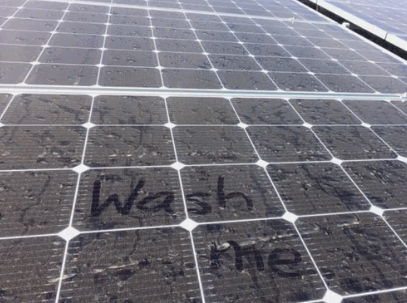
How Often Should Solar Panels Be Cleaned?
According to the National Renewable Energy Laboratory, the frequency of cleaning solar panels can vary based on location, weather conditions, and the amount of dirt and debris accumulation.
Factors such as the presence of air pollution, dust, bird droppings, and pollen in the area can significantly impact the cleanliness of solar panels.
For instance, panels located in a dusty region or near agricultural areas may need more frequent cleaning compared to those in less polluted environments.
Geographic location also plays a crucial role in determining the cleaning schedule of solar panels as regions with high rainfall may experience self-cleaning effects to some extent, while arid regions might require manual cleaning more often.
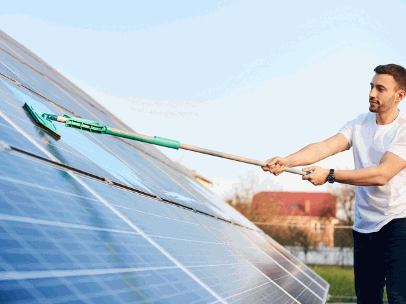
What Are The Different Ways To Clean Solar Panels?
There are several effective methods for cleaning solar panels, each involving different tools and techniques to ensure they remain free from dirt and debris, such as using water, soft brushes, or specialized cleaning kits.
Using Soap And Water
Using soap and water is a common method for cleaning solar panels, involving a mixture of mild detergent and water to gently remove dirt and grime from the surface.
When cleaning solar panels with soap and water, it is crucial to choose a gentle, eco-friendly soap that won't leave residues or harm the environment. A mild dishwashing soap diluted in water is often recommended for its effectiveness and safety.
To apply the soap mixture, fill a bucket with warm water and add a few drops of the soap. Use a soft sponge or cloth to gently scrub the panels, starting from the top and working your way down.
It's essential to avoid using abrasive materials, such as harsh scrub brushes or chemicals, as they can scratch or damage the panel's surface. Make sure to clean the panels early in the day or during cooler temperatures to prevent water spots from forming.
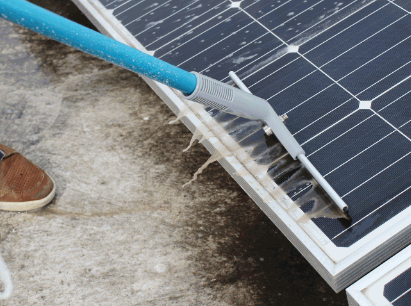
Using A Hose
One of the simplest methods to clean solar panels is by using a hose to spray water over the surface, effectively washing away loose dirt and debris.
When using a hose to clean solar panels, it's important to consider the water pressure you are using. High-pressure water can potentially damage the panels by scratching or cracking them, so it's recommended to use a gentle flow setting. The best times to clean solar panels are early in the morning or late in the evening when the sun is not directly on them, reducing the risk of thermal shock.
While cleaning with a hose is generally safe, there is a risk of electric shock if the panels are damaged or if water seeps into electrical components. Therefore, always ensure the panels are not connected to a power source before cleaning.
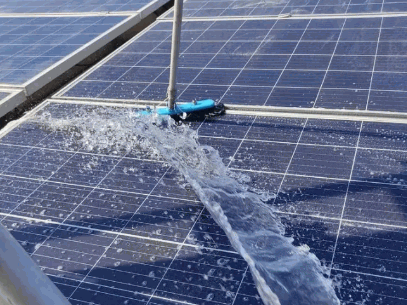
Using A Pressure Washer
Using a pressure washer can be an effective cleaning method for solar panels, but it requires caution to avoid damaging the delicate surface of the panels.
One crucial step in safely using a pressure washer on solar panels is to start by selecting the right pressure setting. A low to medium-pressure setting is recommended to prevent any potential damage to the panels. Adjusting the pressure accordingly ensures a gentle yet thorough cleaning process.
Maintain a suitable distance of at least a few feet between the pressure washer nozzle and the solar panels. This distance helps to evenly distribute the water and avoid concentrated pressure on specific areas, reducing the risk of causing cracks or scratches on the panels.
For optimal results, it is advisable to clean the solar panels early in the morning or late in the evening when the panels are not exposed to direct sunlight. This not only prevents the water from evaporating quickly but also reduces the likelihood of thermal shock to the panels.
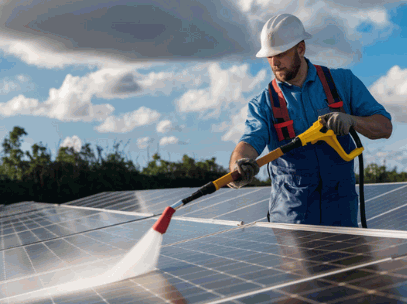
Using A Solar Panel Cleaning Kit
A solar panel cleaning kit typically includes specialized tools such as soft brushes, squeegees, and cleaning solutions designed specifically for the maintenance of solar panels.
These tools work in harmony to provide a thorough cleaning without damaging the delicate surface of the solar panels. The soft brushes are gentle yet effective in removing dirt and debris, while the squeegees help to ensure a streak-free finish. The cleaning solutions are formulated to cut through grime and grease without leaving residue behind.
When using the kit, it is important to start by gently brushing off any loose debris from the solar panels. Next, apply the cleaning solution sparingly and use the squeegee to remove any remaining dirt.
By using a kit tailored for solar panel maintenance, you can ensure that your panels operate at peak efficiency, maximizing their energy output. Regular cleaning also extends the lifespan of your solar panels, saving you money in the long run by avoiding costly repairs or replacements.
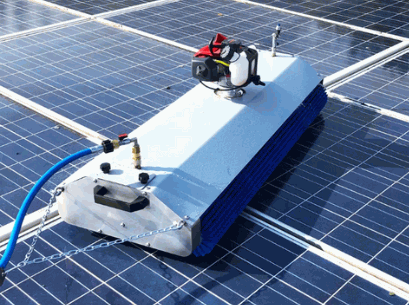
What Are The Dos And Don'ts Of Cleaning Solar Panels?
Regarding cleaning solar panels, there are several dos and don'ts to follow to ensure the cleaning process is safe and effective, protecting both the panels and the individual performing the maintenance.
Do: Use Soft Brushes Or Sponges
Using soft brushes or sponges is highly recommended when cleaning solar panels, as they help to gently remove dirt without scratching or damaging the surface.
Harsh materials like abrasive cleaners or rough cloths can cause micro-scratches on the panel, reducing its efficiency over time. It's crucial to prioritize the use of gentle tools to maintain the integrity of the solar panel's surface.
When selecting cleaning tools, opt for soft bristle brushes or natural sponges specifically designed for delicate surfaces. Microfiber cloths are also a great option as they are soft and less likely to leave lint or residue behind.
Do: Use Non-Abrasive Cleaning Solutions
When cleaning solar panels, it's crucial to use non-abrasive cleaning solutions to avoid causing any surface damage or reducing the efficiency of the photovoltaic cells.
Non-abrasive cleaning solutions are gentle yet effective in removing dirt, dust, and other debris from solar panels without scratching or deteriorating the surface. These solutions help to maintain the smoothness and transparency of the panels, ensuring maximum sunlight absorption and energy production.
- Some suitable non-abrasive cleaning products include diluted vinegar, mild dish soap, or specialized solar panel cleaners.
- When applying these solutions, make sure to use a soft sponge or cloth to gently scrub the panels in a circular motion, followed by rinsing with clean water.
- Regularly cleaning solar panels with non-abrasive solutions can enhance their longevity and performance, ultimately leading to cost savings and improved energy efficiency.
Don't: Use Abrasive Materials
Avoid using abrasive materials when cleaning solar panels, as they can scratch the surface and impair the panels' ability to absorb sunlight efficiently.
Instead of rough materials, opt for gentle cleaning tools such as a soft sponge, microfiber cloth, or a squeegee to maintain the integrity of the panels. Abrasive substances like steel wool or harsh chemicals can cause irreversible damage to the panel's surface, leading to reduced performance over time.
Consider using a mixture of mild soap and water for cleaning, as this solution is effective in removing dirt and grime without causing any harm. It is essential to clean the panels regularly to ensure maximum sunlight absorption, but always prioritize gentle cleaning methods to preserve their longevity.
Don't: Use High-Pressure Water
Using high-pressure water to clean solar panels can be detrimental, as the intense force may damage the panels or dislodge their mounting.
When high-pressure water is directed at solar panels, it can lead to cracks, scratches, or even breakage. This can compromise the efficiency and lifespan of the panels, ultimately affecting their ability to harness solar energy effectively. It is crucial to opt for safer cleaning methods such as using a soft brush and mild soapy water to gently remove dirt and debris without risking any structural harm to the panels. Additionally, maintaining appropriate water pressure levels is essential to ensure that the delicate surface of the solar panels remains intact.
What Are Some Tips For Maintaining Clean Solar Panels?
Maintaining clean solar panels involves regular inspections, timely cleaning, and using appropriate tools and methods to ensure the solar system operates at peak efficiency.
To keep your solar panels functioning optimally, it's essential to establish a regular maintenance schedule. Set reminders for routine cleanings to prevent dirt and dust accumulation, which can reduce energy output. Invest in high-quality cleaning supplies specifically designed for solar panels to avoid damage during the cleaning process. Monitoring your panels regularly for any signs of dirt buildup or shading is crucial to maximize their performance. When cleaning, follow best practices such as using a gentle cleanser and soft brush to avoid scratching the panels.
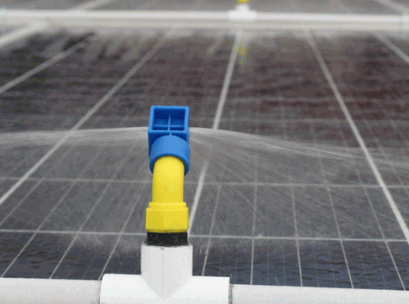
Are There Any Professional Solar Panel Cleaning Services?
Many solar companies offer professional cleaning services for solar panels, providing expertise and specialized equipment to ensure thorough and safe cleaning of your solar system.
These professional cleaning services can offer numerous benefits to homeowners, such as maximizing the energy efficiency of solar panels by removing dirt and debris that can hinder sunlight absorption. Regular cleaning can prolong the lifespan of the solar panels, ultimately saving the homeowner money in the long run. To find reputable providers, it's essential to research online reviews, ask for recommendations from friends or family, and inquire about the company's experience in cleaning solar panels.
When hiring a professional cleaning service, homeowners can expect a comprehensive cleaning process that includes using eco-friendly cleaning products and methods to ensure minimal environmental impact. The cost of professional cleaning services for solar panels can vary depending on the size of the solar system and the extent of cleaning needed. Typically, service frequency ranges from semi-annual to annual cleanings, although this may vary based on the specific needs of the solar panels and the location's climate.
Conclusion
Regular cleaning of solar panels is essential for maintaining their efficiency and maximizing energy production, with various methods and best practices to follow for effective maintenance.
Clean solar panels can significantly boost energy output, ensuring optimal performance of the system. One of the most common methods for maintaining clean solar panels is through regular washing with clean water and a soft brush to remove dirt and dust. It is crucial to avoid harsh chemicals that can damage the panels and affect their efficiency. Periodic inspections to check for debris or shading issues are vital to address any potential obstructions that may hinder sunlight absorption.

